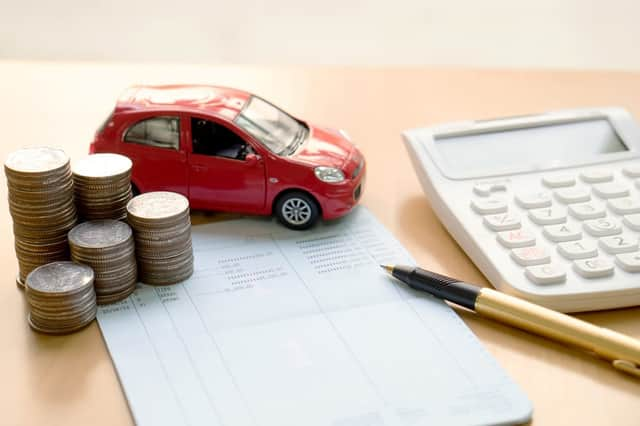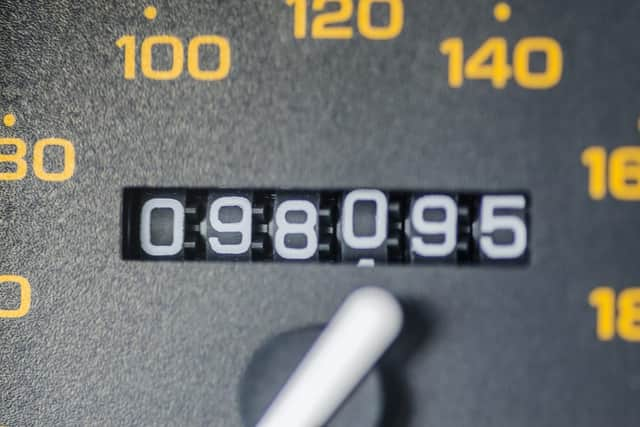Car finance explained: the different types of payment and what the jargon means from PCP to HP, PCH and GAP


More than 90 per cent of new private car purchases are made using some form of finance agreement.
Selling finance packages is a big part of car dealers’ business nowadays and, according to the Finance and Leasing Association (FLA), the motor finance industry was worth £48 billion in 2019 as buyers looked for ways to spread the cost of their purchase.
Advertisement
Hide AdAdvertisement
Hide AdWhile most people opt for a finance package of some sort there is still a lot of confusion around the options available and how they compare, as well as a host of acronyms and jargon to negotiate.
Here we set out the basics around the types of car finance available including PCP, HP, PCH and loans and explain some of the most common terms.


Remember, whichever form of finance you chose you must make sure you can afford the payments otherwise you are at risk of losing your vehicle.
Personal loan
One of the simplest methods to finance a car is to take out a personal loan, usually from a bank or building society.
Advertisement
Hide AdAdvertisement
Hide AdInterest rates on personal loans can be higher than on other methods of finance but allow you to shop around, set the length of loan to suit you and mean you don’t have to worry about deposits or final balance payments. Also, this method means that you own the car outright from the start of the loan as you are essentially a cash buyer.
Be aware that the best loan terms will only be available to people with good credit scores and that, as a cash buyer, you will suffer the full hit of depreciation as the car’s value falls.
Hire purchase (HP)
The simplest type of finance. You will normally pay a deposit of around 10 per cent and then make fixed monthly payments over an agreed timescale. At the end of that period, you own the car outright.
While you are making payments you do not own the car and the loan is secured against the car. That means if you miss payments you could lose the car.
Advertisement
Hide AdAdvertisement
Hide Ad

Once you have paid off half the cost of the car you might be able to return it and not have to make any more payments.
Be aware that the interest rates can be higher than a personal loan.
Personal contract purchase (PCP)
Personal contract purchase is a variation on HP in which you have a choice of actions at the end of the fixed term.
In a PCP deal you pay an initial deposit then make monthly payments over a fixed period. At the end of the fixed term you can opt to pay a lump sum to buy the car - known as a balloon payment - or return the car and walk away.
Advertisement
Hide AdAdvertisement
Hide AdYour monthly payments are calculated to cover the cost of the car’s depreciation, plus interest.
The balloon payment is based on a minimum guaranteed future value (MGFV) of the car, and covers the difference between the MGFV and what you have already paid. It will be larger than your monthly payments. The MGFV is set at the start of the agreement and based on factors such as the age of the car at the end of the term and the predicted mileage.
At the end of the term you may find the car is worth more than the MGFV. In these circumstances a third option is to use that excess as a deposit on a new car and start a new PCP deal.
If the car has depreciated more than expected and is worth less than the MGFV, you are protected from this additional loss.
Advertisement
Hide AdAdvertisement
Hide AdThe monthly payments in a PCP deal will be smaller than those in an HP deal. However, unlike HP, you do not own the car at the end of the term unless you make the final balloon payment.
As with HP you cannot sell or modify the car while the agreement is still in place.
Also, remember that PCP deals include agreed mileage caps. A lower mileage cap usually helps bring down monthly payments but if you exceed this you will be charged for every additional mile.


You will also be charged for any damage to the vehicle and will be expected to keep it serviced and maintained throughout the agreement.
Advertisement
Hide AdAdvertisement
Hide AdIf you want to end a PCP deal early you must have already paid back half the total finance sum or agree to pay the balance. This includes the balloon payment, so halfway through the term doesn't mean you've paid half the sum.
Personal contract hire (PCH)
Personal contract hire is also known as personal leasing. Unlike HP or PCP, it does not give you the option to own the car at the end of the agreement.
Under PCH you pay an up-front deposit - usually equivalent to around three months' worth of payments -then pay a set monthly fee for a fixed time period.
Like PCP, monthly payments are smaller than an HP deal but at the end of the agreement you must return the car. This can make it an attractive alternative to PCP if you have no intention of keeping the car at the end of the agreement.
Advertisement
Hide AdAdvertisement
Hide AdPCH deals include agreed mileage limits. Like PCP deals, you will be charged for exceeding your agreement and will be charged for any damage to the vehicle at the end of the term. Many PCH agreements will, however, include a service plan.
Be aware that a PCH deal is a fixed agreement and if you want to change or end it early there may be significant charges.
Whichever route you choose one of the key factors to consider is the annual percentage rate (APR). This includes the interest rate plus any additional lender charges and tells you how much you are paying over the full term of the agreement. Remember, the APR will vary depending on your deposit and the length of the contract so make sure any comparisons are on a like-for-like basis.
If you are comparing different deals make sure you compare the total cost of borrowing, including the interest, deposit and any additional charges.
Advertisement
Hide AdAdvertisement
Hide AdGAP insurance
When taking out finance you might be offered GAP insurance. GAP stands for guaranteed asset protection and is an insurance policy designed to help if your vehicle is written off or stolen while under finance.
GAP insurance will cover any difference between the payout from your vehicle insurer and the outstanding finance you owe. As with any insurance policy, check the small print and don’t feel you have to take the policy offered by the dealer who sold you car. You might find similar cover cheaper elsewhere.
